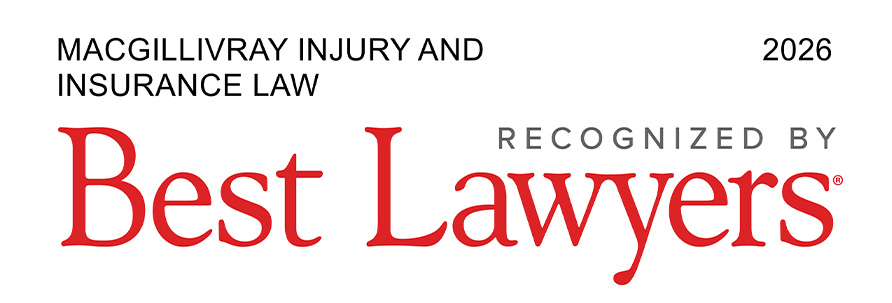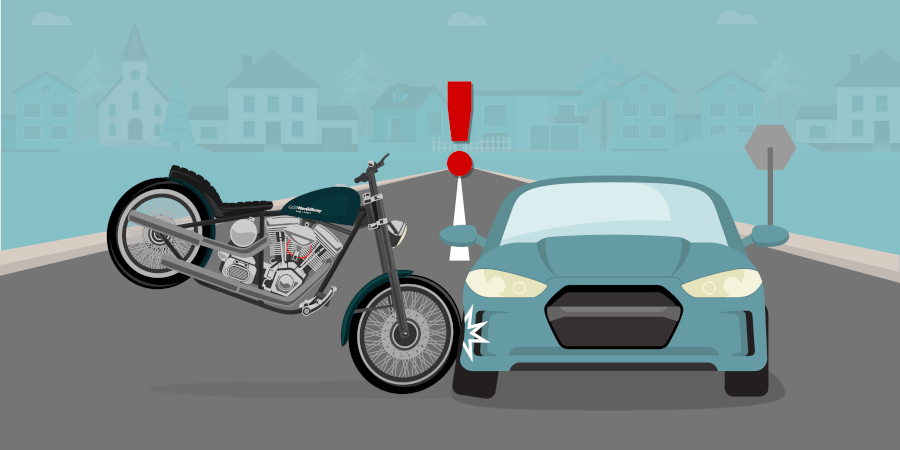




Suing after a motorcycle accident
Riding a motorcycle can be a fun and exhilarating activity. There are many beautiful places to visit in Canada and travelling by motorcycle is one of the many ways to take in our natural landscapes. However, motorcycle accidents can leave riders with devastating injuries, like our past client, Matthew, who lost a limb in a motorcycle accident.
For 30 years, we’ve been helping people involved in motorcycle accidents receive fair compensation for their injuries. If you’ve been injured in a motorcycle accident and would like to learn your legal rights, contact us for a free consultation.
Matthew’s story
Common questions about motorcycle accident injuries
Motorcycles are motor vehicles, and because of that, they are treated by the law the same as a car, truck, or any other motor vehicle on the road.
Visit our Motor Vehicle Accidents page for answers to common questions that apply to all motor vehicles, such as:
- What is the deadline on filing a motorcycle accident lawsuit?
- How much is my injury claim worth?
- What if the other driver is uninsured or unidentified?
- Should I accept the settlement my insurance company offers me?
- Do I have to make a statement to my insurance company?
- How long does a personal injury claim take to resolve?
Motorcycle riders are required to have insurance just like drivers of other on-road vehicles. When an insurance company denies a motorcycle accident claim, or liability for the accident is in question, a personal injury lawyer can help you get the compensation you deserve.
What happens if a motorcycle rider is partially at fault for an accident?
In some motorcycle accidents, the fault may lie both with the rider and the driver of another vehicle. Partial fault on behalf of the injured party is called contributory negligence. When a rider is partially at fault, they will still be entitled to a portion of the damages. This amount will be equal to the percentage of fault the other driver has for the collision.
For instance, if an accident between a motorcycle and truck occurred, and the truck driver was found to be 75% at fault, and the settlement was valued at $100,000, then the compensation awarded to the rider would be $75,000.
If a rider is accused of being totally or partially at fault for an accident, a personal injury lawyer can help in collecting the necessary facts to minimize the partial fault arguments and evaluating the claim to its full potential. Contact us for a free consultation.
Common causes of motorcycle accidents
Due to the high speed of travel and the lack of body protection afforded by a motorcycle, a rider involved in an accident can be subjected to serious bodily harm. Some common causes of motorcycle accidents include:
- Cars making left-hand turns
- Distracted or inattentive drivers
- Road hazards
- Weather
- Bike maintenance issues
- Intoxication
- Lane splitting
- Speeding
Common injuries
When a motorcyclist gets in an accident, the results can be life-changing and disastrous. Some common injuries stemming from motorcycle accidents include:
- Road rash
- Serious fractures
- Spinal injuries
- Damage to internal organs
- Burns
- Brain trauma and other head injuries
Because of the lack of protection to the rider, motorcycle collisions can tragically result in fatalities. When a loved one has passed away in a fatal motorcycle accident, an experienced injury lawyer can help the deceased’s next of kin recover compensation from the negligent driver.
Ways to prevent and minimize the effects of motorcycle accidents
As a rider, there are ways to protect yourself and others while on the road.
- Wear protective gear, including a helmet with eye protection
- Conduct regular safety and performance checks before riding
- Practice maneuvering skills in a private lot
- Be aware of the “invisible motorcycle” phenomenon (perceptual blindness to motorcycles)
- Stay out of other drivers’ blind spots
- Give yourself time and space to react to dangerous situations
- Stay alert
Relevant legislation
Motor Vehicle Act, RSNS 1989, c 293. (Nova Scotia)
Motor Vehicle Act, RSNB 1973, c M-17. (New Brunswick)
Highway Traffic Act, RSNL 1990, c H-3. (Newfoundland and Labrador)
Highway Traffic Act, RSPEI 1988, c H-5. (Prince Edward Island)
Highway Traffic Act, RSO 1990, c H.8. (Ontario)
Have questions for our team?
Frequently Asked Questions
- How can I help my personal injury lawsuit to get the best settlement?
- 7 steps to take after a motorcycle accident to help your injury claim
- How can a lawyer help with my personal injury claim?
- Can you sue a driver whose identity or insurance details are unknown?
- Is the parking lot 50/50 myth true?
- Can apologizing after an accident impact your claim?
- Am I covered by insurance if I was driving someone else’s vehicle?
- Does the minor injury cap apply to my motorcycle accident claim?
Request a
Free Consultation
If you would like to learn your legal options at no obligation, contact us today to set up a free consultation.







